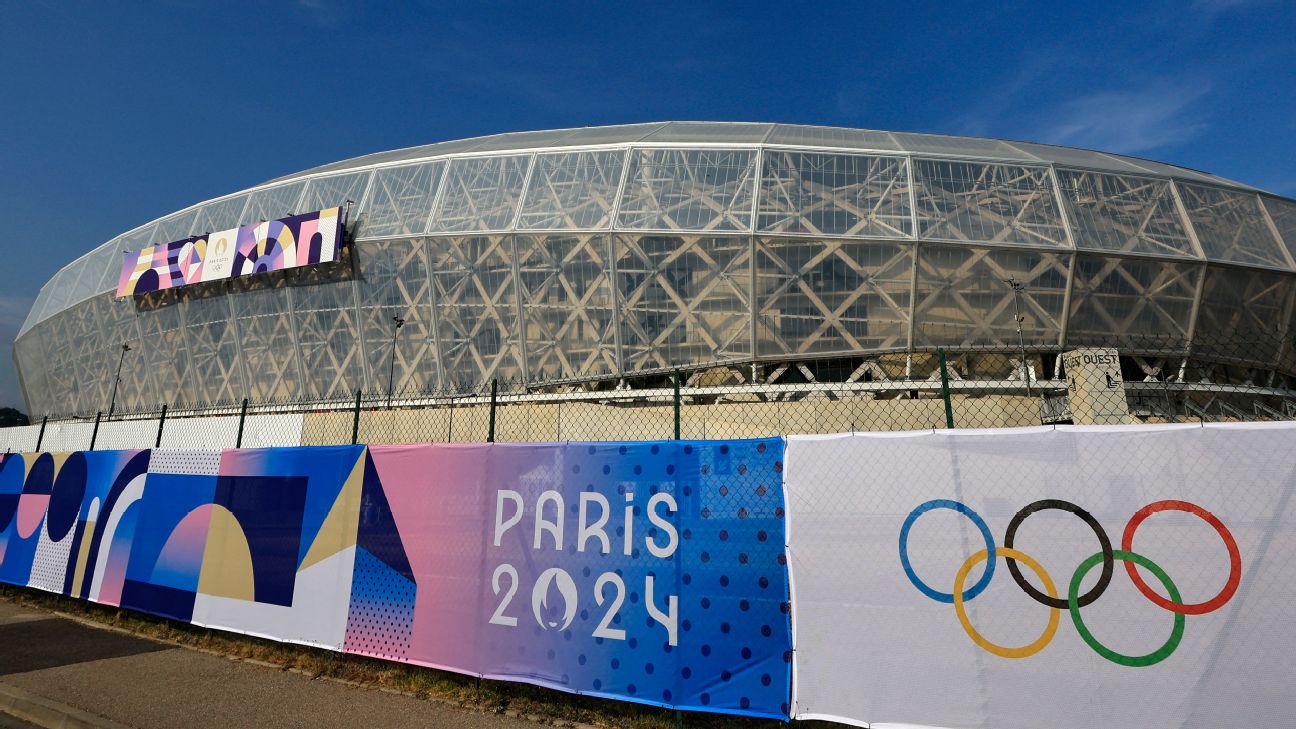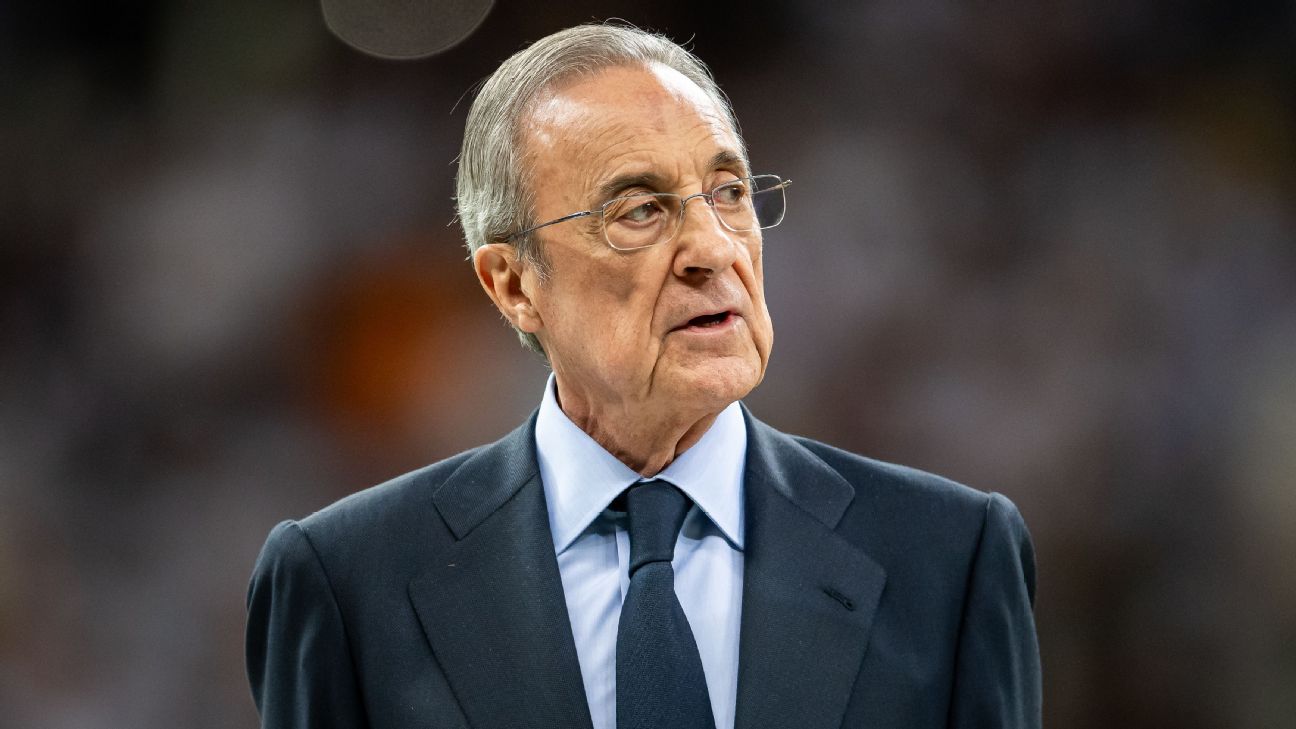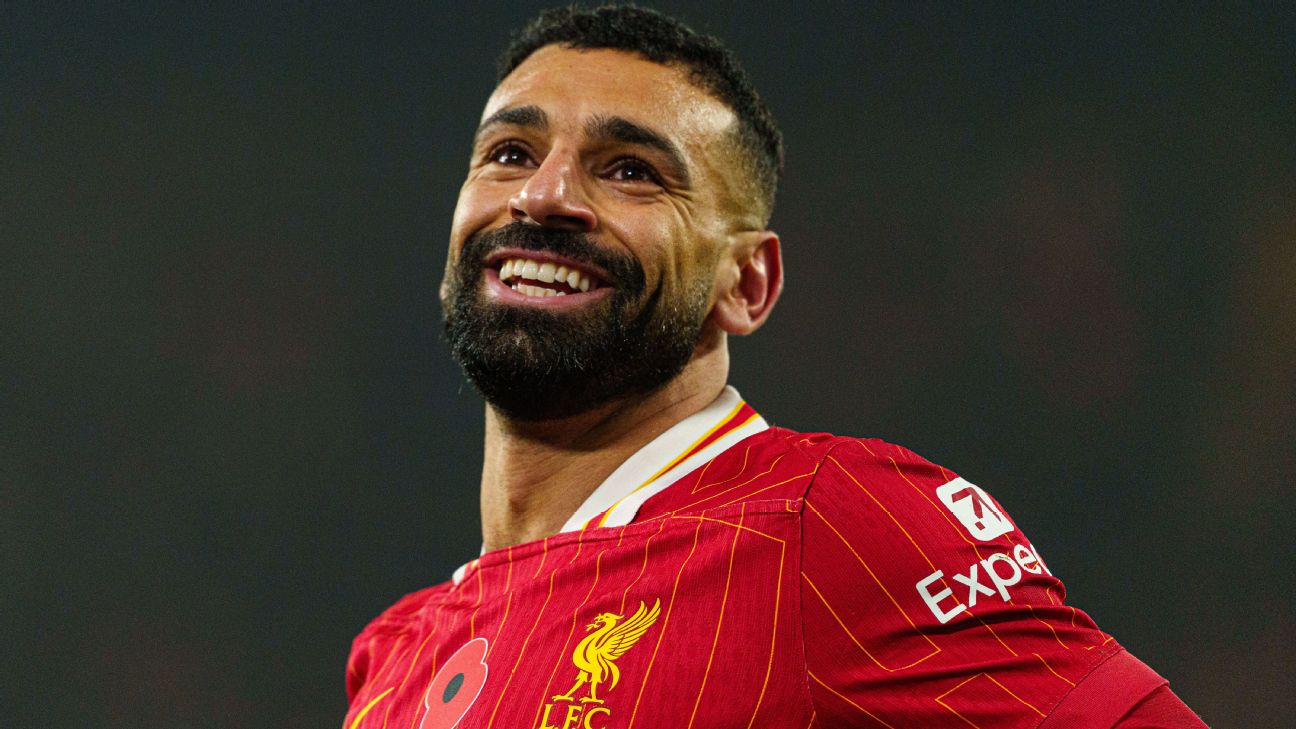The 2024 Paris Olympics have their much-anticipated Opening Ceremony on Friday, but as has been the case for years, actual competition — led by the men’s and women’s soccer tournaments — starts several days earlier.
The United States qualified teams for both tournaments at these Games, and the U.S. men will start things off with a group-stage game against France on Wednesday night; the USWNT then opens up a night later against Zambia.
All teams in the tournaments are hoping to make it to the medal games, which will be played at PSG’s Parc des Princes on Aug. 10 (women) and Aug. 9 (men). Since the Olympics soccer tournaments are a bit different than the competitions fans are most accustomed to seeing, here’s a Q&A on what to expect.
So … is Olympic soccer a big deal?
It absolutely is, especially on the women’s side. For them, only 12 teams qualify and everyone brings their best players — essentially, it’s a mini World Cup. The USWNT will be captained by Lindsey Horan, and will feature younger stars like Trinity Rodman and Naomi Girma, as well as veterans like Rose Lavelle and Crystal Dunn. (There’s no Alex Morgan — more on that later.)
Catarina Macario, who played for new coach Emma Hayes at Chelsea and was hoping to take part in her second Olympics, was a late withdrawal because of a knee injury and was replaced by Lynn Williams.
On the men’s side, it’s different. The men’s tournament isn’t on FIFA’s official calendar, which means that club teams aren’t obliged to release their best players so they can take part in it. To compensate, the Olympics runs an under-23 competition, where the 16 participating teams bring rosters full of the sport’s youngest stars, along with three over-age players per team.
And just to answer the obvious question early: No, Argentina isn’t bringing Lionel Messi, nor has France included Kylian Mbappé in its roster.
Lionel Messi explains his reasoning behind deciding not to go to the Olympics with Argentina.
What about the U.S. men’s team? Is Christian Pulisic playing?
The U.S. men hadn’t qualified since 2008, so there’s definitely excitement within the federation to see them at this event. The team — which is technically a youth national team and not the full USMNT — is led by Marko Mitrovic, who has been a coach with US Soccer since 2022 and was an assistant with Reading (of the English Football League) and the Chicago Fire (Major League Soccer) before that.
He selected a roster that has some young players USMNT fans will already know (Gianluca Busio, Kevin Paredes) as well as on-the-rise potential stars (Paxten Aaronson, Taylor Booth). Goalkeeper Gabriel “Gaga” Slonina, who played last season with Dutch club Eupen on loan from Chelsea, is one of two goalkeepers on the roster.
The three overage spots were — spoiler alert — not used to bring in the USMNT’s biggest stars, which means Pulisic wasn’t chosen. Defenders Walker Zimmerman and Miles Robinson, plus playmaker Djordje Mihailovic, will fill the overage spots.
What would be a good result for the U.S. teams?
As you might imagine, these answers aren’t the same. For the USWNT, the sting of getting eliminated early at the 2023 World Cup still lingers, and this is the first major tournament since the program received a major overhaul. Normally, one might think a new coach like Hayes would get a little leeway in terms of expectations, but there isn’t much margin when it comes to this group and this fanbase: An appearance in the medal games feels like the minimum here.
For the men, it’s probably a lower bar in terms of expectations. Despite opening group stage play with a match against France, the draw was decent to the U.S. men, with games against New Zealand and Guinea on the schedule. Advancing to the knockouts should be expected.
Could they make a medal run? Absolutely. But there’s no doubt that the pressure will be lower than what the women’s team will face, allowing the team to play a bit more freely.
USWNT manager Emma Hayes explains that the team is solely focused on the games ahead at the 2024 Olympics.
OK — so who are the favorites?
On the women’s side, the USWNT is looking to make Hayes’s debut tournament a smashing success, but there’s certainly no guarantee of the Americans taking gold. This is definitely a transition tournament for the U.S. roster — as evidenced by Morgan missing her first Olympics since 2008 — and they’re ranked fifth in FIFA’s latest rankings, their lowest since the rankings began in 2003.
Three of the five squads above them are in the field (England doesn’t field an Olympic team). World Cup champions Spain are expected to have their starting XI from the last World Cup available in France, including Aitana Bonmatí and Jenni Hermoso. Hosts France and Wendie Renard will be looking to impress at home, while Alexandra Popp and eight-time European champions Germany are back after missing the last Olympics. Canada won gold in Tokyo last time around, and they’ve medaled in the last three Olympic tournaments.
On the men’s side, France will be coached by legend Thierry Henry and feature Alexandre Lacazette, while Argentina is managed by Javier Mascherano and have a slew of players from the World Cup-winning senior team in their side, including Julián Álvarez, Thiago Almada, Nicolás Otamendi and Gerónimo Rulli. They’ll be tough to beat.
What is the format?
Each team will play three group stage games. On the women’s side, the top two teams in each group plus the two best third-place teams advance to the quarterfinals, which are followed by semifinals, and then the bronze (losers of the semifinals) and gold (winners of the semifinals) medal matches.
On the men’s side, only the top two teams in each group advance to the knockout rounds. Similarly to the women’s, the men’s side features quarterfinals and semifinals before the medal matches.
In terms of extra time, group stage matches will result in draws, but in the knockouts, there will be two 15-minute periods of extra time if the score is tied at the end of full time. If the teams are still deadlocked after extra time, then the game will go to a penalty shootout.
Each team also gets five substitutes during the course of the game, and a sixth is added if the game goes to extra time.
Will VAR be used during the Olympics?
Yes. VAR was used for the first time at the Olympics in 2020, so it will be operational for both the men’s and women’s tournaments in France. Of the 89 officials appointed by FIFA, 20 are video match officials who will work exclusively with the VAR system.
How are they playing that many games in Paris?
They’re not. Olympic soccer is often staged at stadiums around the host city’s country, and matches will be played in six other cities: Marseille, Bordeaux, Nice, Saint-Etienne, Lyon and Nantes.
Both the U.S. men and women will play most of their group stage matches in southern France; the women play two of their games in Marseille and one in Nice, while the men play two in Marseille and one in Saint-Etienne.



